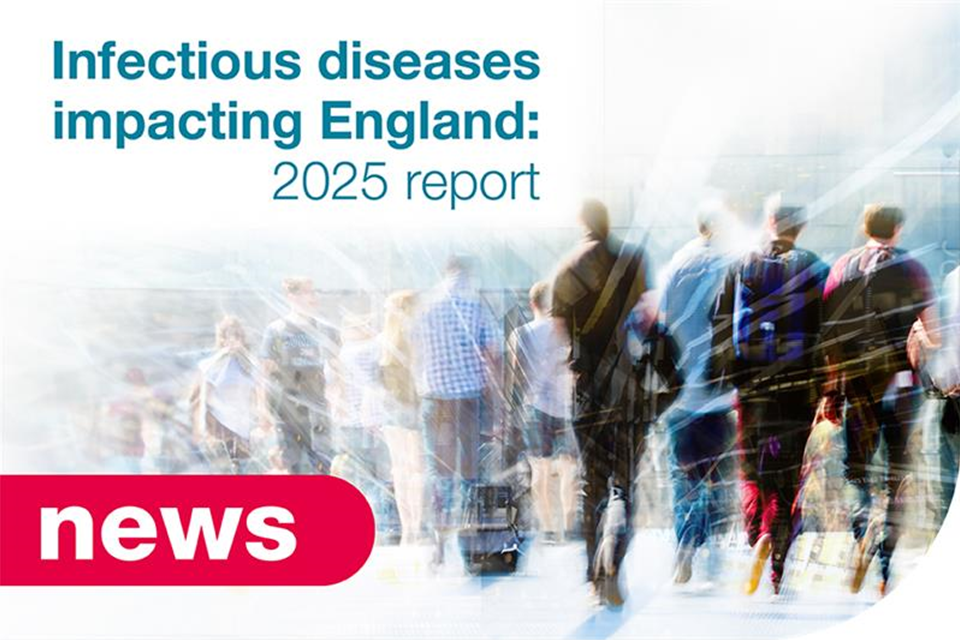The Infectious Diseases Impacting England: 2025 Report Highlights Rising Threats
In the winter of 2024, Mary Thompson, a 76-year-old grandmother from Birmingham, was admitted to the hospital battling severe respiratory distress. She had returned from a family visit abroad, only to find herself in the grips of a rampant wave of respiratory syncytial virus (RSV) that surged after pandemic restrictions lifted. Cases like hers are becoming increasingly common, illuminating a troubling trend: infectious diseases are once again a formidable threat in England.
The Rising Tide of Infectious Diseases
The UK Health Security Agency (UKHSA) recently released its 2025 report, revealing that infectious diseases were responsible for over 20% of hospital bed usage, costing the National Health Service (NHS) nearly £6 billion in the 2023-2024 fiscal year. This sharp rise in endemic diseases and vaccine-preventable infections shows no signs of abating, with the report documenting a stark resurgence in illnesses such as tuberculosis (TB), measles, and whooping cough, all exacerbated by post-pandemic social behaviours.
Post-Pandemic Patterns
As social mixing, international travel, and migration resumed following the COVID-19 pandemic, infectious diseases have re-emerged with a vengeance. Richard Pebody, Director of Epidemic and Emerging Infections at UKHSA, noted, “The changes in behaviour during and after the pandemic have led to a significant rise in various infections, many of which were previously under control.”
- Influenza and RSV: An intense season has impacted the elderly disproportionately, prompting new vaccination programmes.
- COVID-19: Though transmission rates have decreased, incremental vaccine effectiveness remains a critical measure of public health.
- Tuberculosis: Reports indicate an 11% rise in cases in 2023, with projections showing a further 13% increase in 2024.
Notable Interventions and Positive Outcomes
Despite alarming trends, the report also highlights significant public health interventions that have yielded promising results. The introduction of targeted RSV vaccination programmes for vulnerable groups, including the elderly and pregnant women, has led to a notable 30% reduction in RSV hospital admissions among those aged 75 to 79 during the winter of 2024.
Dame Jenny Harries, Chief Executive of the UKHSA, stated, “Our scientific capability and the introduction of new interventions are all helping to keep people safe and well, but we have plenty of work ahead.” This push for innovation includes the recently proposed gonorrhoea vaccination programme for high-risk groups, showcasing a proactive approach to sexually transmitted infections.
Vulnerable Populations and Disparities
The inequalities starkly exposed by the pandemic continue to underpin the crisis in infectious diseases. In areas classified as the 20% most deprived, hospital admission rates due to infectious diseases are nearly twice those in the least deprived regions. The UKHSA is grappling with this pressing issue, conducting further research to understand the drivers behind these disparities.
Mary Thompson’s experience is overshadowed by similar cases that reveal a broader narrative: “When we look at the statistics, we must not forget that they represent real people, many of whom are elderly or vulnerable,” said Dr. Emma Wallace, an epidemiologist at the University of London. “These are not just numbers; these are individuals with families and communities who are affected.”
The Numbers Behind the Trends
The recently released report from UKHSA presents a daunting picture:
- Over 600 additional TB notifications projected for 2024 compared to 2023.
- A troubling increase of measles cases in children under 10, underscoring the importance of vaccination.
- 433 reported cases of whooping cough in infants under three months, with 10 tragic fatalities.
Challenges in Vaccination Uptake
Despite public health successes, vaccine uptake has seen a worrying decline among critical demographic groups. Rates for measles, whooping cough, and even flu vaccinations among at-risk populations have fallen. “We cannot afford to be complacent,” Pebody warned. “Vaccination remains one of our most powerful tools to mitigate the burden of these diseases.”
Future Directions
The ongoing challenges necessitate renewed commitment and innovation in public health strategies. UKHSA continues to collaborate with healthcare partners to enhance its TB action plan, focusing on prevention and detection. As new evidence-based interventions emerge, like the doxycycline post-exposure prophylaxis for syphilis, the agency is striving to fill gaps where disease transmission occurs.
As the winter of 2024 demonstrated, rises in infectious disease rates have implications not only for those directly affected but also for the NHS and broader society. “Behind this data are real people—sick or at risk, many of whom can be prevented,” Dame Jenny Harries poignantly noted, emphasizing that the harm caused by infectious diseases extends beyond health, impacting economic stability and community resilience.
As England grapples with these rising infectious diseases, the need for bold action and comprehensive public health initiatives has never been clearer. Only through vigilance, scientific innovation, and public engagement can the nation hope to reverse the current trends and protect the health of all its citizens.
Source: www.gov.uk


